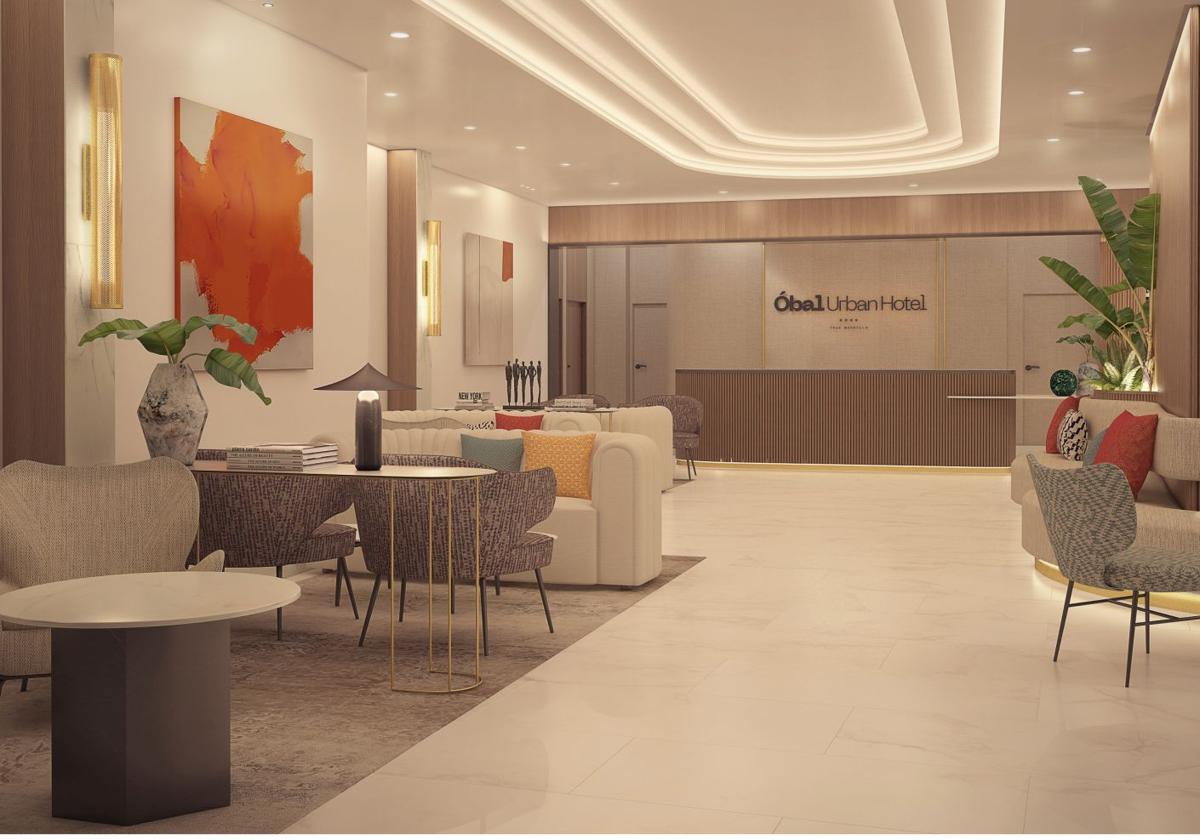Hotel modernisation scheme that saw 310m invested in Malaga and along Costa del Sol expires
The Junta de Andalucía has announced that it is working on a similar new project after the success of the first initiative
The so-called 'hotel modernisation decree', approved in 2021 in the Andalucía region to adapt hotels to the requirements imposed at that time by the Covid-19 pandemic and to permit some extensions to certain building improvements by up to 20% in certain cases, is coming to an end.
Hoteliers and interested parties have tried every means possible to avoid this expiry date coming, considering that its temporary extension to date has been key to boosting investment and improvements in the Andalusian hotel industry. However, a further extension to the aid scheme is legally unfeasible. For this reason the Junta's regional Minister of Tourism, Arturo Bernal, has already announced that his department is working to create a similar regulation under the new Tourism Law, following the success of the first call for applications from most provinces in Andalucía.
The Junta estimates that 94.2 million euros have been mobilised to modernise hotels across the region, with 78.7 million going to Malaga province. There are some projects where the investment has not been quantified, which is why these figures are different from those of Aehcos (the trade association for hoteliers in Malaga and the Costa del Sol), which put the total amount spent by the 26 establishments that claim to have benefited from this regulation at 310 million euros.
Bernal points out that "we are very satisfied with the results because projects have been developed practically in all the provinces and especially in those with the largest hotel trade, such as Malaga and Cadiz where, for example, on the Costa del Sol, projects worth over 78 million euros have been accepted." In addition, he explains that "both in the section of deseasonalisation of demand and in the upgrading, the result has been better than expected and makes us think that, if in the future we have the possibility of having these funds again, we could make a new call after the success of this first initiative."
Bernal points out that the decree was issued in response to a specific regulatory incentive based on dealing with the post-pandemic recovery. Despite their best attempts, they were advised by the Junta's legal services that it was not possible to formally extend the scheme. However, he gave assurances that they are working on "creating a new legal framework that will allow new options for hotel improvements, either by upgrading or by increasing services to diversify their offer, and which can be done thanks to the new Tourism Law we are developing, and that regulatory framework will allow this regulation to be taken up again in the future without issues." The regional minister explains that "it would no longer be a decree based on specific circumstances from the pandemic, but tied to a regulation approved in [regional] parliament that includes hotel improvements as one of its objectives. This is not an option, it is what we are working on."
The data from the Junta indicate that several projects are being approved across most provinces. In Almeria four projects have been approved with a total investment of 2.2 million euros. In Cadiz eight initiatives have been presented, of which three have obtained a favourable opinion and two unfavourable, one is still being processed and two are pending documentation, totalling 13.2 million euros. In Huelva five improvements have been undertaken without detailing the investment made, as is the case with the reform of hotel approved in Seville.
1,475 jobs
have been generated as a result of refurbishing, renovating and upgrading of hotels in Malaga province, projects that took advantage of the hotel modernisation decree that has just expired.
In the province of Malaga, the Junta confirms that 15 proposals were submitted, of which 12 have been approved, one had obtained an unfavourable report and two are still being processed. The total amount is 78.6 million euros, but in the projects presented by the Don Carlos, Lima, San Cristóbal and Globales Playa hotels, they have not quantified the investment made, so the amount disbursed far exceeds the declared 78.6 million euros.
Hoteliers in the province stress the importance of reestablishing this legal framework for the aid scheme as the jobs created by these investments totals 1,475 workers, raising the number of staff employed in the hotel industry sector by 6.4%.
Half of the hotels in the province are interested in renovating under this scheme.
The hoteliers keep pushing their request to regional government of the need to extend this decree. They mention that they carried out a study among the 346 associated businesses in the province several months ago regarding this matter. The study revealed that 57% of these hotel businesses are willing to undertake work to improve their facilities in the coming years if the scheme remains in force for at least three more years. Aehcos president José Luque insisted that there is a strong will in the sector to renovate and adapt hotel facilities post-pandemic, also to take advantage of this scheme to modernise for sustainability and energy efficiency reasons.
The report on this study also pointed out that, of the 221 establishments that have not undergone renovations in recent years, 126 would be agreeable to total, partial or occasional renovation work with 63 of them expressing clear intent. This means an estimated investment of 352.8 million euros provided this law were extended for three years.
On the Costa del Sol renovating the hotel supply is a constant. Aehcos points out that 70.50% of hotel accommodation has already undergone renovations of some kind in the last decade. Of this percentage, 33.3% of the businesses undertook total, partial or occasional improvements during or after the pandemic, while 66.67% did so before 2019. The outlay made has been significant, with an average investment of 2.8 million euros per hotel.

